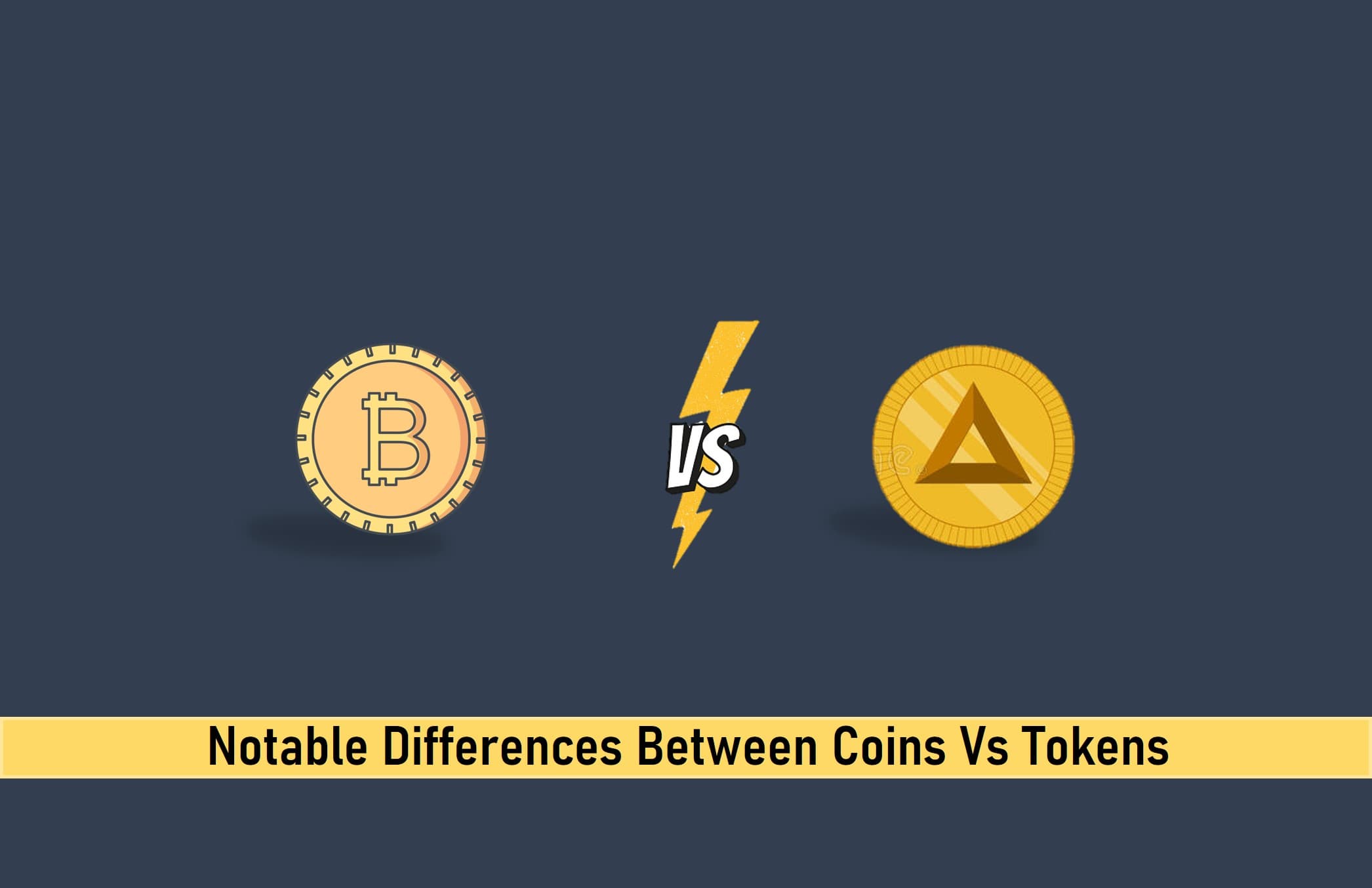
In the world of Decentralized Finance (DeFI), coins and tokens are often misplaced when used to represent certain cryptocurrencies.
As a new investor or someone ready to take the bold step of building a sustainable crypto portfolio, understanding the thin line between what a crypto coin is and what a crypto Token is, can be of benefit to your portfolio.
Let’s see some of the most notable differences between these two digital assets.
Key Takeaways
• Coins and tokens are both Cryptocurrencies but with different uses.
• Tokens depend on smart contracts on the existing blockchain for validating transactions.
• Tokens extend the functional capabilities of a blockchain beyond the limits of what a coin is used for.
SEE ALSO: Best 10 ERC20 Tokens On the Market
SEE ALSO: Top 10 Crypto Utility Tokens You Should Know
SEE ALSO: Major Differences Between Utility and Investment Tokens
SEE ALSO: How to Get Back Stolen Bitcoin from Cybercriminals
What is a Crypto Coin?
Bitcoin, being the first coin, sets the features of what qualifies as a coin. A cryptocurrency or coin is a digital asset built on its standalone blockchain and serves as a store of value on it.
Coins are unique to their blockchain and only exist on it and not on others. It serves as a means of exchanging value within the blockchain.
What is a Crypto Token?
Tokens are digital assets that run on already existing blockchains. They do not have a blockchain of their own and they serve as units of value. Tokens can be regarded as denominations of a Coin.
What are the Differences Between a Coin and Token
While Coins and Tokens are both digital assets capable of being a store of value and medium of exchange, they do have their differences.
| Coins | Tokens |
| Coins run independently on their blockchain. | Tokens, on the other hand, do not have a blockchain to themselves. They run on existing blockchains. |
| Crypto coins do not leave the blockchain network. Transactional changes are only reflected on the individual accounts as plus or minus, depending on who is sending and who is receiving, and then broadcast across the entire network. | Unlike coins, tokens can run on more than one blockchain. This makes them fast for transacting across blockchains. Tether, a token on Ethereum blockchain, is also existing on Tron, Algorand, and other blockchains. |
| Coins are created by mining, a process of creating the blockchain network block by block. Coins come into existence as rewards for mining a block using proof of work (PoW) or proof of stake (PoS) verification. | Tokens are created through an initial coin offering. A process where funds are raised through the selling of the token to investors. |
| Creating a secure and successful blockchain is not such an easy task, so many choose to begin as tokens on an existing blockchain network. | Tokens are easy to create, unlike coins. And thanks to platforms with token templates, creating them requires little to no technical knowledge. |
| Coins are a store of value and transacting them is how the blockchain gets formed. | Tokens follow a particular standard for token creation on the host blockchain to integrate with it. For example, most tokens on the Ethereum network are either ERC-20 or ERC-721 standard tokens depending on if they are meant for DApp use or as NFTs. |
| Coming down to how Coins and Tokens are used. Coins are primarily created for use as a medium of exchange and a store of value. They are also used as fees for transactions within the blockchain. | Aside from being a store of value or means of exchange, tokens have many uses. Tokens can be utility tokens for particular use within a blockchain. See our list of top 10 utility tokens. Tokens can also represent deeds or assets in digital form. There are tokens for gaming, others for borrowing, and some serve as NFTs, digital securities and the list goes on. Some tokens serve as governance tokens for allocating voting rights for making decisions regarding changes in a blockchain. |
| Transaction fees on DApps are paid with the coin of the host blockchain. | Tokens also stand as the utility for operating DApps. Every DApp operates with a token. |
Frequently Asked Questions (FAQs)
Q1. Can a token become a coin?
Yes, crypto tokens can become coins. This happens when a token project finally develops its blockchain. The tokens are then migrated to the new blockchain as a crypto coin. The process involves investors trading the token to be migrated for the coin on the new blockchain.
Binance Coin (BNB) is an example of a token that became a coin. BNB was initially launched as a token on the Ethereum network in 2017. After reaching the 100 million BNB target for its ICO, it was migrated to its blockchain, the Binance Chain.
Another example is Tron (TRX), initially an ERC-20 token on the Ethereum network before migrating to its blockchain as a coin.
Q2. Is Ethereum a token or a coin?
A popular name in the crypto world, Ethereum is the name of the blockchain network upon which the crypto coin Ether (ETH) operates. But the name of the blockchain has become more popular than the Coin itself, hence it is referred to as Ethereum.
Looking at the fact that it has its blockchain and is used as a store of value and medium of exchange, it is safe to say Ethereum is a crypto coin and not a token.
Knowing the difference between coins and tokens allows you to know which to use for a particular purpose. Tokens are better suited for paying for services.
Also Knowing tokens and Altcoins with great upside potential for investments often narrow down to their uses. What they are used for plays a role in how successful they become during a period. For instance, non-fungible tokens are recording huge success currently.
Read More




